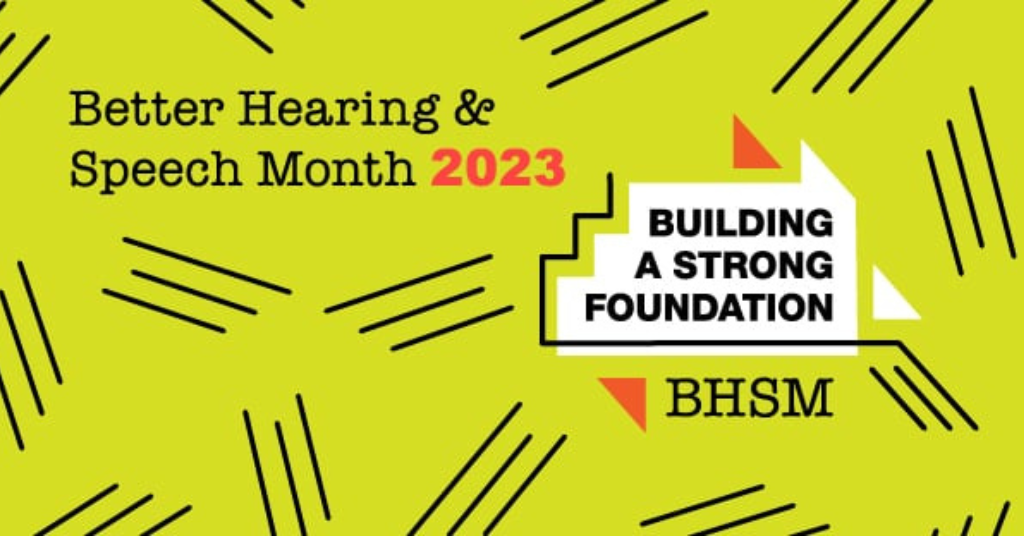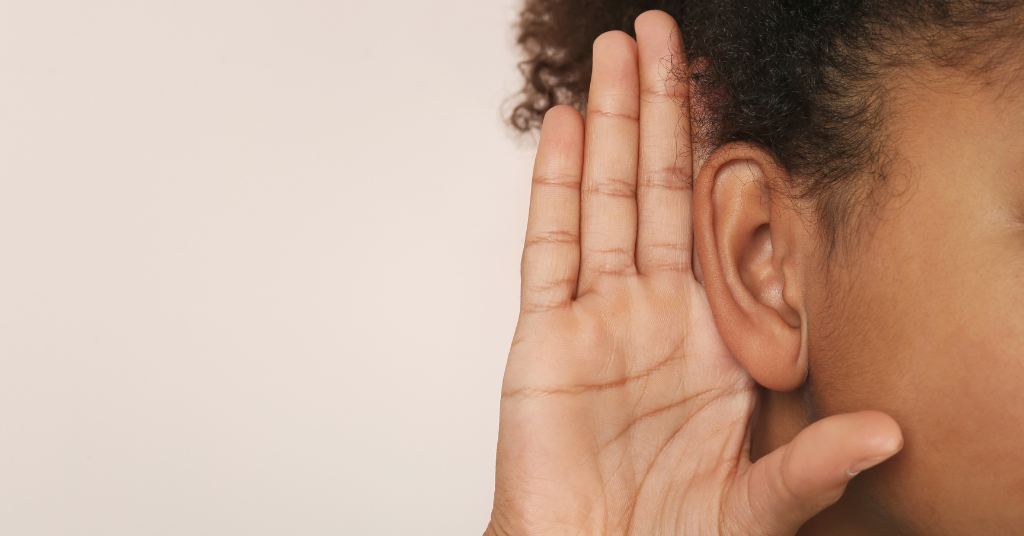
Hear Haiti: Bienvenue en Haiti
February 13, 2016
Hear Haiti: a vibrant start
February 16, 20166 Ways to Enhance Your Hearing Experience

I’ve previously talked about the importance of being mindful about your hearing. I’ve found that taking the time to pay attention to how your hearing changes in different environments and after different activities can make you more aware of your hearing health in general. Once you have a good grasp on how your ears are functioning, you could move on to activities to re-train your hearing.
While I’m not a doctor or hearing professional – and do not encourage any of my blog posts to be taken as medical advice – here are some activities that I’ve found have “enhanced” my hearing experience.
1. Consider aural rehabilitation
Depending on your hearing loss and ability, you may benefit from hearing rehab, listening exercises and/or ear training. Before 2013 I had no idea what aural rehabilitation was. Then, a musician friend suggested I visit the Hearing Rehabilitation Foundation in Boston, which works with those with hearing aids and cochlear implants to strengthen their hearing experience through a variety of techniques and exercises. While I was trying to get back to music, the therapist first pointed out that I was not a good speech listener and had grown lazy. He also mentioned the effect that it had on my musical hearing. We worked on my listening through sound and tonal exercises and hearing comprehension as the therapist read to me (sometimes with his mouth covered and sometimes with his mouth exposed, for lip reading.) At one point in our training I had improved from 54 words a minute to 114 words a minute. More importantly, friends were telling me that I seemed to be hearing much better. I was. And I was listening better too.
“More importantly, friends were telling me that I seemed to be hearing much better. I was. And I was listening better too.”
Subsequently, my singing pitch started to improve as well. My brain was getting every benefit of these exercises, as well as my attention for listening. You can now also find apps that will help you to “exercise” your ears, as well as programs such as The Listening Room. Do it. It works.
2. Wo Oh Oh Listen to the Music
I wish I had taken this advice a long time ago. For more than 30 years I did not listen to music much. Me… a lifelong and professional musician and recording artist! But for the longest time, it was too physically and emotionally painful to listen to music. What I heard was distorted or confusing to my ears. Little did I realize that my brain was listening too, and trying to make sense of it the whole time. I had said goodbye to that part of my life and didn’t give listening to music another thought. In the past few years, as I upgraded my hearing aid to include programs that provided a broader frequency and tonal range, I realized that feeding the brain with music was a good idea and has a lot of research backing that up.
Frankly, I don’t know how I survived without listening to music all those years. During the heyday of “sex, drugs and rock and roll,” music was my drug even after all-day recording sessions and performances. I used music to relax and decelerate. It wasn’t a specific kind of music, just the soothing essence it provided. I had also forgotten how much a part of my emotional life music had become as well. Now I listen to music to feed the brain as well as my soul. I have several strategies. As I work from home, I can listen to music without interruptions. I listen to music that I am familiar with to cut down on confusion or having to concentrate.
With streaming services I can choose the music I listen to throughout the day. For writing and relaxing, I listen to non-vocal classical music and soft instrumentals, and when I don’t know the music, I just let the melodies and the pulling of a bow on a violin or cello transport me. With my improved hearing experience, I am able to pick out and enjoy a variety of instruments in an orchestra or ensemble as never before and just let the sounds wash over, around and through me.
If I am cooking, or working around my place, I will listen to my favorite pop and rock music, and old standards from the American Songbook, and sing along. Dr. Charles Limb, a hearing specialist at Johns Hopkins University believes that listening to jazz may repair hearing loss. I’m listening to more jazz than ever before. When life with hearing loss sounds like a dull thud or you’re feeling especially isolated, listen to music. Search until you find music that you are familiar with and is pleasant to your ears and tweaks your heartstrings and memory bank. It worked for me. And it could help enhance your hearing experience.
3. Sing in the shower
Singing in the shower. What a concept – the ears vibrate to sound and don’t when they do not hear sound. The ears need stimulation to work well, and suffering a hearing loss may reduce the sound and vibration they are supposed to receive. Hmmm. Along with my hearing aid and hearing rehab, nothing has enhanced my hearing more than singing. And it seems to get better by the day. I sing throughout the day practicing intonation, sustaining notes, using correct breathing techniques, doing vocal exercises and together they are helping to sharpen my hearing experience. Sometime it’s so dramatic a change that it surprises even me. Then I remember that I used to do this without thinking and how wonderful it is to have it lock in once again. Though for decades there was much confusion in my hearing, I never stopped a cappella singing.
I just never understood that while I could barely make sense of what I was hearing, the brain was listening too. With the listening exercises from aural rehab, I experience a greater clarity and tone to my own voice as well as to external sounds, including music. When I returned to singing with a renewed passion, I saw further improvements. In October 2015, I performed live for an audience for the first time in 34 years. It wasn’t perfect but it was a start, and I did two more concerts and each time my performance was more precise. I also tweak my tech to get the right balance of my hearing aid or my ear monitors with the piano, vocal and room acoustics through amplifying and room monitoring.
Now, I’m also able once again to enjoy one of life’s great pleasures – singing in the shower. For years, without my hearing aid I felt lost and self conscious about singing and I hated hearing the dull sound of my voice in the shower amidst the hissing shower head and the dampening of sound from the cloud of steam. I had to bend my ear to really hear anything. I also noticed that if my sinuses or throat was clogged that that further dampened the sound of my voice.
Sing out, my friends, and don’t wait until you have the perfect voice or can hit a high C. Nothing may be better for your hearing than your own voice.
One recent morning during a musical shower, I heard the natural echo of the stall and the walls in the bathroom and my voice resonated with a force and clarity I hadn’t heard in decades. Hello? There may be nothing like singing in the shower to open the voice and lungs, the channels of your heart and soul. So forget about your hearing loss for a few minutes and sing in the shower – everyday – and see what happens. Sing out, my friends, and don’t wait until you have the perfect voice or can hit a high C. Nothing may be better for your hearing than your own voice.
4. Love your audiologist
I hear from many with hearing loss that they don’t like having to visit their audiologist for a host of reasons: time, cost, “nothing helps,” etc. Nothing could be further from the truth. Audiologists know stuff. Good stuff. New stuff. And the help they can give you is priceless. They do your fittings, tune your aid and tweak the settings to make it better and easier to hear others, watch television, listen to music, play an instrument or just be comfortable in various situations. Your visit often is free, paid for when you bought your hearing aid. (Your hearing test, however, should be covered by your insurance.) Also, if your health changes, it may require some adjustments to fit your aid to your new circumstances – even something as simple as putting on or losing weight. As a musician and singer, I get very special attention to the settings on my hearing aid that help me perform more precisely and allow me to enjoy listening to music when I am rehearsing or just relaxing.
(Or find a new audiologist)
No one is required to stay with an audiologist that does not give you good products, good answers and the best ongoing and friendly service. Get references and work with someone you like and trust. I love my audiologist and have a second professional who works with singers and musicians and to whom I go for specific technical questions. He also helped me get custom fitted ear monitors that I use on stage in and in the studio.
5. Stay out of loud places
You know the spots. concert halls, sports stadiums construction zones… not to mention some restaurants, bars and even retail stores. When possible, avoid loud places, and when you cannot, take precautions to reduce the noise entering your ear canal. Complain to the proprietor and tell him or her to get with the program. Loud places are so over – but still so prevalent. In the meantime don’t just buy earplugs. Have some ear plugs custom molded to fit your ears. There are now custom fitted ear buds for your phone too. These will allow you to hear well while also providing the protection you need. Carry them with you at all times. And find some new (quieter) places to eat, drink and have fun.
6. Take vocal lessons
As a singer, I can tell you that we hear and we make sound with the entire body, not just the ears and voice. Singing lessons can teach you how to access more of your vocal instrument. Vocal lessons may also sharpen your hearing experience. While you’re at it, look into chanting. My Hearing Rehabilitation Foundation therapist and others have recommended that I listen to Gregorian Chants to sharpen listening and brain activity. Work with a teacher or simply start by sitting comfortably and chanting, “OM AH EE AY OO” and feel the vibration of each sound resonating in a different part of your body. When you get to EE – well, enjoy that vibration in particular.
“… start by sitting comfortably and chanting, “OM AH EE AY OO” and feel the vibration of each sound resonating in a different part of your body. When you get to EE – well, enjoy that vibration in particular.”
Go ahead. Enhance your “hearing experience,” then please share them with me and the readers of “Open Ears” in the comments below. Thank you.










